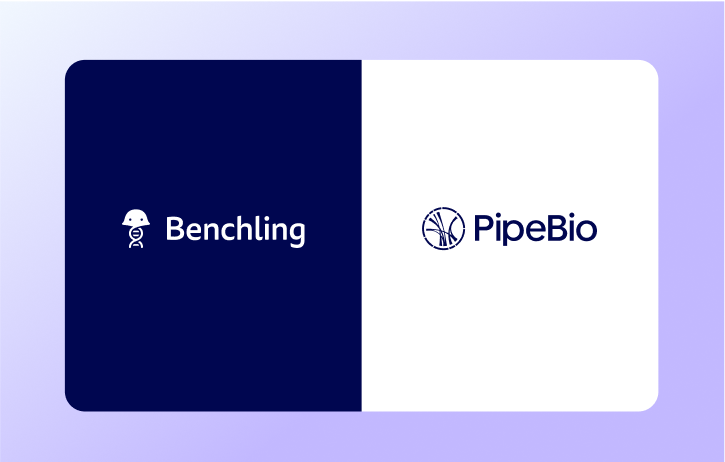Benchling acquires PipeBio to accelerate AI-powered antibody discovery

We’re excited to announce our acquisition of PipeBio, a leader in high-throughput bioinformatics analysis, to drive biologics discovery. At Benchling, we’re committed to building modern software for scientists in biotech R&D. This move expands our capabilities in biologics, and allows us to more comprehensively support teams working in antibody drug discovery and design.
Why PipeBio?
Antibodies are the workhorse of modern biologics, and the demand for purpose-built tools that can adapt to novel antibody formats, cutting-edge lab techniques, and computational science is growing by the day. We knew there was more we could offer to support scientists in the earliest stages of antibody discovery, where they are analyzing massive libraries and screening sequences to identify hits and begin engineering campaigns.
This is where PipeBio comes in.
Founded in 2020, PipeBio has developed a cloud-based bioinformatics product purpose-built for biologics discovery. Their product excels at antibody screening, empowering scientists to process millions of sequences, visualize data, and identify lead candidates. Their focus on large-scale sequence analysis complements Benchling and enables us to offer a complete software stack for end-to-end antibody discovery and development, from screening millions of sequences for early hits to developing the processes to manufacture clinical candidates.
Over the last three years, we got to know the PipeBio team, led by its founders, Jannick Bendtsen and Owen Bodley, through Benchling’s Developer Program. They built an integration to Benchling and our shared customers gave us an early insight into the benefits of a combined solution. Similar to Benchling, PipeBio has brought scientists together with technologists to solve challenging software problems in drug discovery, and we are thrilled to welcome the team.
The future of antibody discovery
Approaches to antibody R&D are changing rapidly as drug discovery gives way to drug design. Large-scale, complex experimental data generation is being paired with computationally-driven and AI-based approaches. These new approaches are reshaping how scientists bring new antibodies to the clinic and necessitating a complete rethink of the technology stack to connect the wet and dry labs. R&D teams need tools that are adaptable and scalable to these emerging trends.
Alongside the rest of Benchling’s platform, PipeBio is going to play a critical role in building this future in three main ways:
PipeBio’s sequence intelligence will become a cornerstone in the design and registration of complex large molecule formats.
Their high-throughput screening and assay data visualization capabilities will tie together sequence, structure, and function for biologics to enable candidate selection.
By offering out-of-the-box AI models and integrating with customer models, PipeBio will enable predictions to be used throughout the discovery process and simplify collaboration between wet and dry lab teams.
Our shared vision is to accelerate biologics research by offering modern software to help scientists work smarter. Whether it’s improving the speed and scale of screening, enabling AI predictions for antibody properties, guiding candidate selection, or making data more accessible and actionable, we’re committed to shaping the future of antibody discovery.
Looking ahead
We’re excited about the future of this partnership and what it will mean for the scientific community. If you're working on the next generation of antibody workflows, we'd love to hear your thoughts. You can get in touch with us here.
Stay tuned for more updates as we continue to build the next generation of solutions for biologics research — together with PipeBio.
Powering breakthroughs for over 1,300 biotechnology companies, from startups to Fortune 500s
